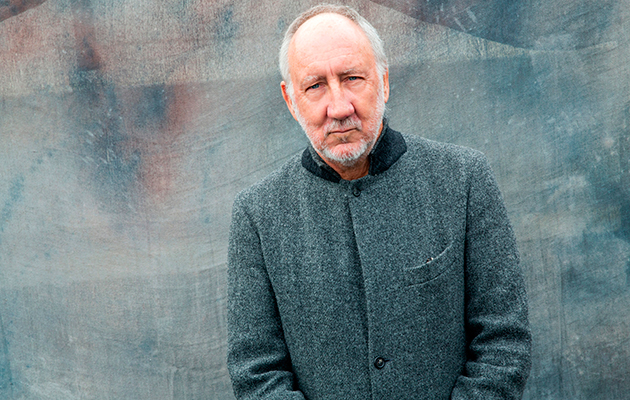Writing in his 2012 autobiography, Who I Am, Townshend acknowledged, “Live shows gave us a sense of being filled and refuelled; we carried that energy from our fans and used it to fire our performances. Without live shows we lost our entire sense of function.” He was talking specifically about The Who live shows in 1972, in context of his experiences trying to “reconnect” with The Who’s audience. How relevant is that quote in 2015?
I think the way that we perform now live, it doesn’t matter for me. Those were magical times. That is why it was so tragic to lose such wonderful, charismatic raconteurs, but also vibey people, like Kit Lambert and Keith Moon. Then the final kick in the balls was to lose John. So what we had was the clever song writer and innovative guitar player and the singer who can sometimes hit the notes. Roger and I share slightly different approaches to The Who’s history. He exalts it, and I don’t. I think what I exalt, if you like, is a system that lay behind it. Roger sees mystery and genius and magic and what I see is very, very crafted thinking. Even if you look at what Keith did, and the way he ran his life, it was very deliberate. It was very WC Fields, Mel Brooks, organised chaos. Behind it was a very, very strong personal thesis that disguised incredibly low self-esteem. What makes good performers is a combination of grandiosity and low self-esteem; those two things driving against one another. The best performers are like that.
How much of that is true for you?
I think it was me. I don’t think it is any more. I probably worked through that more quickly than almost anybody else that I know. My songwriting revealed that to me. For example, when I wrote “My Generation”, I thought, ‘What the fuck is this all about? Who’s it for? Who wrote it?’ I could see that I had irritation and anger with the snobbery that surrounded me where I was living in Belgravia at the time. But also where is the grandiosity in “My Generation”? It’s when the singer says, “Why don’t you all just fuck off!” But the humility in it, the low self-esteem, is “W-w-w-why don’t you all fuck f-f-f-fade away?” I looked at the combination of those two things and I thought, ‘Fuck, this comes from me.’ I’d given it to Roger and Roger can now imagine that he came up with the stuttering – he didn’t, but he can imagine it, own it. But I don’t think Roger would admit to low self-esteem, although he suffers from it terribly. I think every performer must do, it order to be able to do their job properly.
So if The Who are more of a live proposition these days, how often do you write?
All the time?
In what ways has your songwriting changed, then?
I write more for myself and for my own needs; probably for a marked place that I anticipate may come about, but may not. I’m working much more as I did when I was a young art student. I’m looking ahead, working towards creating an event that might happen in an installation, that may or may not be possible in five years time. But also always with an eye of the mechanisms of pop. I’m working in a world that is definitely closer to Björk and Damon Albarn than Noel Gallagher. I’m not writing songs and leading an efficient, orderly life. I’m scrabbling and experimenting. But unlike Björk and Damon Albarn, I am tied to this immense, monolithic money generator.
You mean The Who as a touring enterprise?
Yes. But it’s not about me and Roger going out and making millions and millions, because we don’t. But nonetheless when you look at the grosses, they’re huge.



